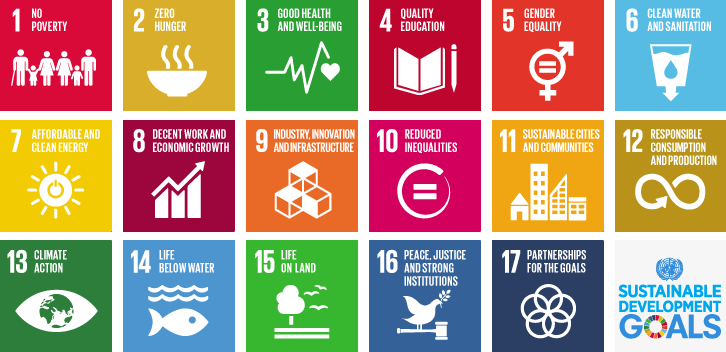Cultural relations and Sustainable Development Goals: new policy agendas
Cristina Peregrina | 22 Jun 2021
In the last months, there have been a lot of debates on the Sustainable Development Goals (SDG’s) and their relation to the cultural sector. This has been a topic of interest for cultural policy researchers, more specifically those in cultural relations and cultural cooperation. This growing incorporation of the SDG’s in the agendas of the cultural sector worldwide comes at a time where the COVID-19 pandemic has impacted their work on a large scale. Could this be one of the motives behind adopting the SDG agenda in a stronger sense? and thus inserting the cultural sector in a clear global and human rights based agenda?
The SDG’s themselves are not a new topic, as they were established in 2015 with 17 goals as their main objective to be met in 2030: no poverty; zero hunger; good health and well-being; quality education; gender equality; clean water and sanitation; affordable and clean energy; decent work and economic growth; industry, innovation and infrastructure; reduced inequalities; sustainable cities and communities; responsible consumption and production; climate action; life below water; life on land; peace, justice and strong institutions; partnerships for the goals.
Moreover, the cultural sector has been holding debates on incorporating culture into the SDG’s. Back in 2017 the organization ‘Agenda 21 Culture’ lobbied for culture to be included in the SDG’s but it was unsuccessful. Even with the support of other strong institutions like IFACCA, International Federation of Arts Councils and Culture Agencies, IFCCD, Culture Action Europe, Arterial Network, IMC, and ICOMOS. Recently, some of the leaders of this movement to lobby for culture in the SDG’s, called for more action from Latin American practitioners for pushing on culture being a part of the SDG agenda.
Moreover, in the last months during the pandemic, international organizations such as British Council and EUNIC (EU National Institutes for Culture) have had dialogues regarding cultural relations or cultural affairs and the SDG’s. In the case of the British Council focused more on heritage. These actions come from some of the most representative international organizations, that influence cultural relations discussions of other organizations across the globe. For example, in Latin America recently organizations and universities on national based contexts such as Conecta Cultura (Mexico) and the Metropolitan Autonomous University (Mexico) have now held dialogues on this topic. Therefore, the lobbying for this topic is being strengthened on national and local contexts also.
In the global-local tensions from international agendas to national or local contexts there is one particular concern on the SDG’s agenda. That is that it is an initiative led by Western countries and that in the Latin American case, the leadership comes from key actors in Spain. Furthermore, this debate on cultural relations and SDG’s started in European organizations and later on moved to Global South countries.
As previously mentioned, the SDG’s are a topic on-trend on cultural relations and overall cultural practitioners around the globe. This hiatus on the topic, risks for the agenda to become a temporary debate for cultural policy and cultural cooperation. As other topics have become central to recent debate, such as digitalisation due to the COVID-19 pandemic. Moreover, cultural relations and the SDG’s inserts itself in a global discourse where pressing issues are being discussed. The insertion of cultural cooperation and relations onto the SDG agenda seems necessary to urgent problems the world is facing during the on-going pandemic crisis. The cultural relations and SDG’s political agendas contribute to cultural affairs being a pillar for the socioeconomic recovery during the pandemic.
Finally, one structural imbalance in cultural relations and SDG’s agendas is that it is mainly debated in Western Europe. Therefore, other regions still need to be included in this political-academic discussion. Especially those regions most affected by the issues the SDG’s wish to tackle and that are essential to meeting the objectives established by the United Nations. Nevertheless, sustainable development goals in cultural relations agendas seem a realistic approach and necessary one in the midst of the current pandemic and the actions taken by key international organizations should be in stronger dialogue with scholars and practitioners alike.










Leave reply